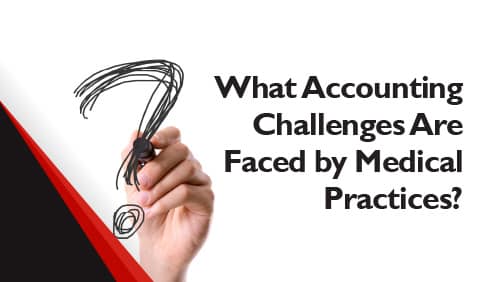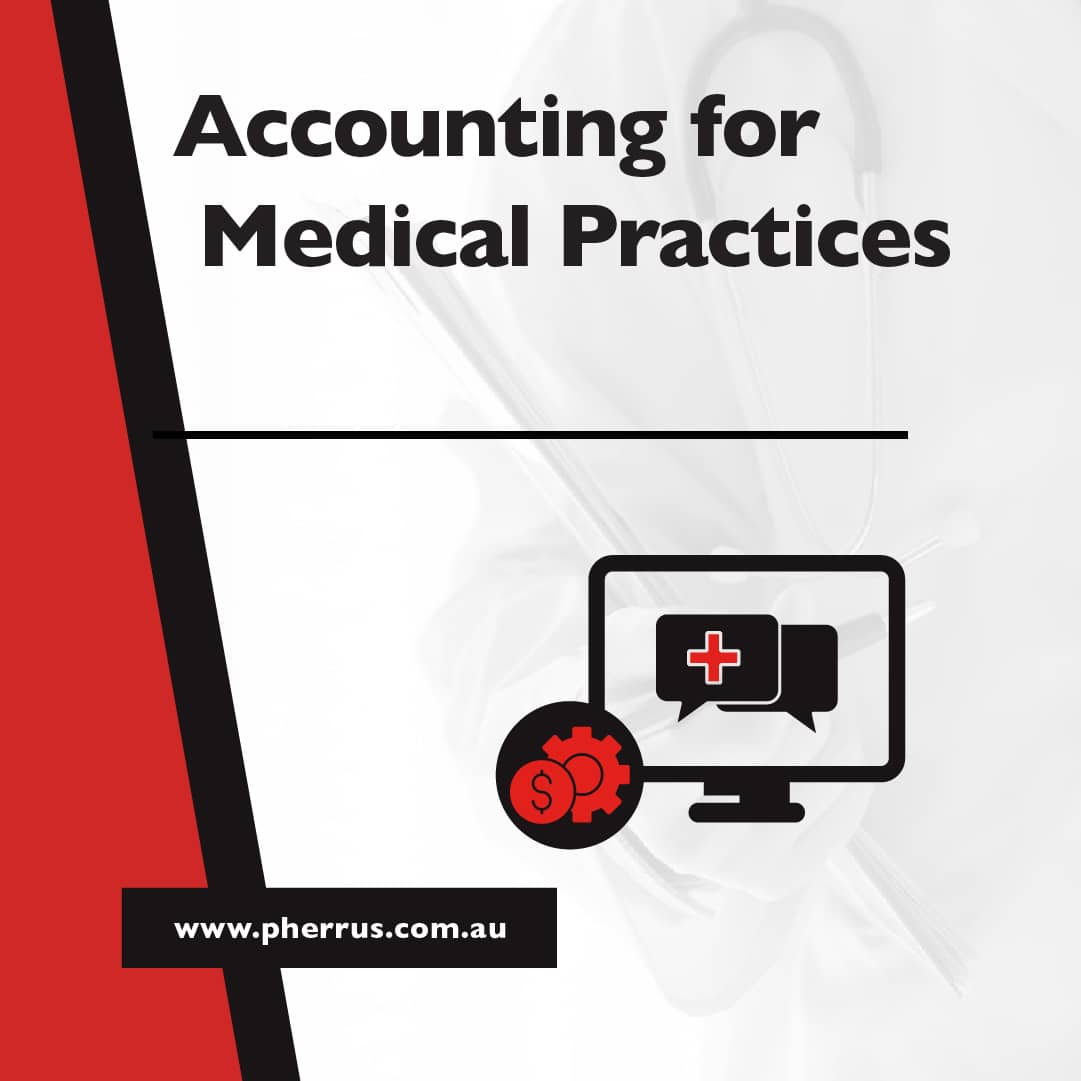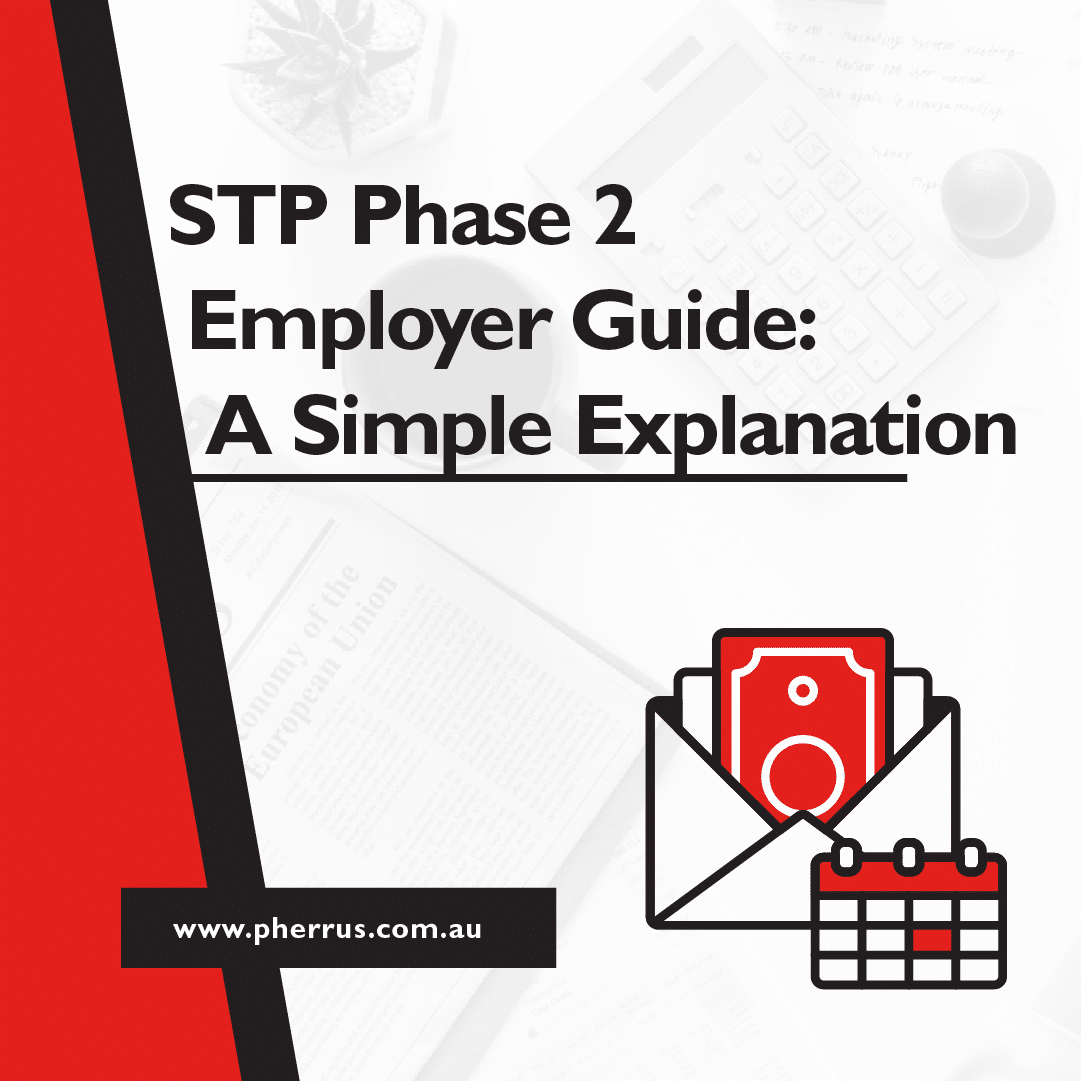Running a medical practice is no small feat.
From diagnosing ailments to offering life-changing treatments, your plate is always full.
But amidst the hustle of patient appointments and the commitment to improving lives, another aspect demands your attention- the health of your medical practice’s finances.
The challenges of accounting for medical practices can be as intricate as the human body and just as vital for your practice’s well-being.
Let’s learn about these challenges and, more importantly, find out how skilled accountants can help your practice thrive financially as well as clinically.

What Is Medical Accounting?
Accounting for medical practices involves recording, analysing, and reporting financial transactions unique to the medical industry.
When speaking of the medical industry, we’re referring to
- Alternative health practitioners
- Chiropractors
- Dentists
- Doctors
- Mental health practitioners
- Physiotherapists
- Veterinarians
Accounting for medical practices, in particular, includes managing
- Complex billing structures.
- Regulatory compliance tailored to the healthcare sector.
- Multiple revenue streams from varied sources like government rebates and private insurers.
- Specific tax considerations.

What Accounting Challenges Are Faced by Medical Practices?
Specific Billing Protocols
In the medical field, billing isn’t just about issuing an invoice and receiving payment.
Due to the varied treatments available, each consultation or procedure can have its own billing price, protocol, and insurance coverage criteria.
Accurate billing is crucial not just for the practice’s revenue but also to provide clarity for patients and insurers.
Regulatory Compliance
The healthcare industry in Australia operates under a stringent set of regulatory guidelines.
Adherence to these is non-negotiable and covers everything from patient care standards to financial transactions.
Falling short in compliance issues can result in hefty penalties, a tarnished reputation, and, in serious cases, the loss of a medical license.
Patient Privacy and Data Security
Medical practices handle confidential personal information, including medical history, financial data, and insurance details.
It’s paramount that this data is kept secure, especially during financial transactions or reporting.
A breach could have legal ramifications and erode patient trust.
Multiple Revenue Streams
Medical practices often juggle revenue from several sources, such as direct patient payments, rebates from the government, claims from private health insurers, and other third-party payments.
Managing and reconciling these streams requires meticulous tracking for optimal financial health and transparency.
High Operating Costs
Operating a medical practice is an expensive endeavour, and effectively managing high operating costs is crucial to maintain a practice’s profitability.
Beyond the usual business costs, practices face significant expenses for
- Medical equipment
- Continuous professional education
- Licensing
- Malpractice insurance
Practice Valuation Complexities
Putting a value on a medical practice isn’t straightforward. It’s not just about tangible assets like equipment or property.
Considerations like patient demographics, practice reputation, and potential for future growth based on current patient relationships play a role.
Correctly assessing these factors is essential for sales, partnerships, or mergers.
Unique Tax Considerations
The taxation landscape for medical professionals is distinct.
There are specific incentives, rebates, and deductions available that might not apply to other industries.
Navigating these, ensuring maximum benefit while staying compliant, requires an understanding of both the medical and accounting fields.

How Can an Accountant Help Medical Practices?
Accounting Software Selection and Setup
Accounting software for medical practices streamlines operations for accuracy and efficiency.
And with the real-time data they offer, you’ll always be up to date with the financial health of your business.
Accounting software for medical practices automates the following tasks to make your life easier:
- Patient billing
- Claims management
- Financial reporting
- Expense tracking
- Payroll processing
- Tax calculation and submissions
- Inventory management
- Accounts receivable tracking
- Accounts payable management
- Appointment and service revenue tracking
An accountant familiar with the healthcare landscape can guide you in selecting the best accounting software for your medical practice.
They can also offer training on using the software so you get the most from it.
Accurate Bookkeeping
Accurate bookkeeping ensures that every financial transaction, from patient billings to equipment expenses, is diligently recorded.
Proper records help you make smart financial decisions and prepare you for tax season and potential audits.
Bookkeeping is time-consuming and complex.
An accountant will use the best, proven practices to maintain your financial records, freeing up your time and lessening your stress.
Comprehensive Financial Reporting and Strategic Financial Planning
Accountants can generate precise financial reports, including profit and loss statements, balance sheets, and cash flow statements.
These reports will help you understand the financial well-being of your practice.
Using these insights, accountants can assist with budgeting, forecasting, setting financial goals, and assessing financial risks.
This strategic planning means you can anticipate expenses, grow and maintain profitability, and make wise financial decisions.
Efficient Tax Handling and Proactive Tax Planning
Filing your business’s tax returns correctly and on time is non-negotiable to avoid penalties and fines from the Australian Taxation Office.
Accountants will assemble the necessary financial records and leverage available deductions to minimise your tax bill.
They also have the know-how to keep your practice compliant with all relevant taxation laws.
Beyond tax season, accountants offer continuous advice to maximise potential rebates and optimise transactions for ultimate tax efficiency and savings.
In Australia, medical practices can encounter specific tax considerations, incentives, and regulations. Your accountant can help you navigate these.
- Goods and Services Tax (GST): Medical services are generally GST-free, so while medical practices do not charge their patients GST, they can still claim GST credits for the GST included in their business purchases.
- Capital Gains Tax (CGT) concessions: These concessions are available to medical practices if the practice is sold or transferred.
- Research and Development tax incentive: Medical practices or businesses involved in medical research might be eligible for this tax incentive, which provides a tax offset for suitable activities.
- Fringe Benefits Tax (FBT): Medical practices that provide certain benefits to their employees (like cars or payment of private expenses) might be liable to pay FBT.
Patient Accounts Receivable and Cash Flow Management
A steady cash flow is critical for ongoing operations and future investments.
And proper patient accounts receivable management is a big part of healthy cash flow.
Such management encompasses billing accuracy, timely follow-ups, and understanding insurance claim protocols.
For financial stability and potential growth, an accountant can
- Monitor income and expenses.
- Forecast cash flow.
- Strategise for expected and unforeseen economic scenarios.
- Streamline the accounts receivable process.
- Manage outstanding patient dues to secure timely payments.
Payroll Management
Payroll in the medical sector goes beyond salaries.
It involves tax withholdings, superannuation contributions, and adhering to employment regulations.
With an accountant’s expertise and assistance, your staff will be paid accurately and on schedule while complying with legal requirements.
Audit and Financial Review Assistance
Audits and financial reviews are no picnic for business owners, so having an experienced accountant by your side is a must.
Your accountant will prepare clear documentation of your financial operations.
Then, with their deep understanding of audit processes and requirements, they will guide you through every step, addressing reviewer concerns and minimising potential discrepancies.
The involvement of an accountant adds to your business’s credibility and reduces the stress associated with these assessments.

Does Your Medical Practice Need Accounting Help?
Just as you are committed to the well-being of your patients, Pherrus is dedicated to the financial well-being of your practice.
With accountants, agents, tax lawyers, and industry-specific consultants on our team, we’ll offer advice tailored to your business and circumstances.
We’ll also provide the meticulous care your practice’s finances demand to keep them in optimal health.
Then you can focus on your core goal- delivering exceptional patient care. Ready for a financial check-up?
For expert accounting for medical practices, fill in our online form or call +61 (02) 9099 9109 to book an appointment at our Bella Vista office in Sydney, NSW.





